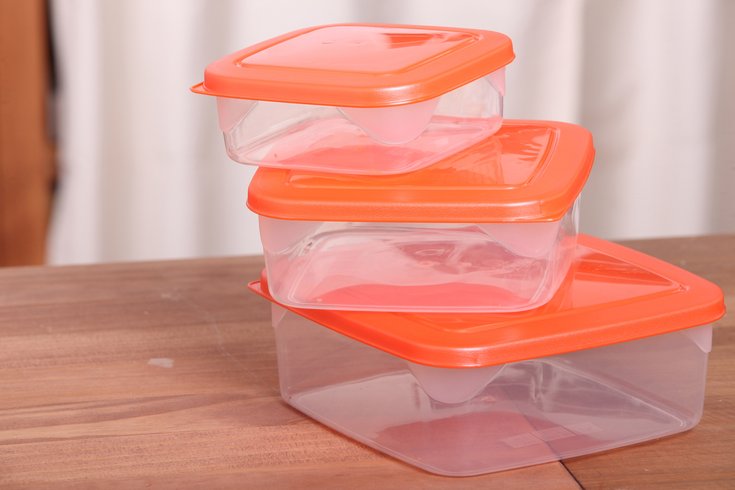
February 07, 2024
 Source/Image licensed from Ingram Image
Source/Image licensed from Ingram Image
Phthalates are chemicals used to soften the plastics in food containers, beauty products and shower curtains. They have been linked to several developmental and reproductive problems, including preterm births.
Phthalates, a group of chemicals commonly found in plastic food containers and packaging, have long been linked to reproductive health problems. A new study has added further evidence to pile, tying several phthalates to preterm births.
Researchers found that exposure to four types of phthalates was associated with decreases in a fetus's gestational age and an increased risk of preterm birth. The study identified 56,595 preventable preterm cases with associated costs of $3.84 billion, figures that suggest "a need to regulate chemicals with similar properties as a class." It did not establish a causal relationship.
Scientists have been sounding alarms on phthalates for over a decade, pointing to other potential health impacts. The chemicals, which disrupt the endocrine system, have been linked to increased risks of miscarriage, gestational diabetes and thyroid cancer. Evidence suggests phthalates also can lead to developmental problems, asthma and higher blood pressure in children.
Though phthalates are used in numerous plastic products to soften and bend the material, their presence in food packaging has become a matter of particular concern, because these chemicals are known to leach into food. Public health experts and numerous environmental and food safety groups have argued that the U.S. Food and Drug Administration should ban phthalates from food production in recent years.
Between 2016 and 2022, the FDA received numerous petitions related to phthalates in food contact applications, which led the agency to revoke prior authorization for 23 of the chemicals but reject an outright ban. Nine phthalates are still approved for use in food packaging and certain adhesives and sealants, though they cannot be added directly to food.
Experts often warn consumers to keep plastic containers out of the microwave or dishwasher, because heat can cause phthalates to leak into food. But plastic chemicals can get into food in other ways, such as trash degrading the water and soil or through food production equipment like tubing and conveyor belts. A recent Consumer Reports investigation found phthalates in nearly every grocery store or fast food item tested, with particularly high levels in Wendy's crispy chicken nuggets, Annie's Organic cheesy ravioli, Del Monte sliced peaches and Chipotle chicken burritos.
Since phthalates are used so widely, it's difficult to avoid them entirely. They are found not only in food packaging but makeup, shower curtains and perfumes. Identifying them is also a challenge, as products rarely include explicit disclosures about phthalate concentrations. But there are still ways to limit exposure, according to groups like the American Academy of Pediatrics and Natural Resources Defense Council:
• Eat fresh, unprocessed foods as much as possible
• Use glass or stainless steel when cooking or serving hot foods
• Wash plastic containers by hand
• Avoid plastics with the recycling code 3
• Scan labels for common phthalate abbreviations like DiDP and DiNP
• Shop for "phthalate-free" beauty products
• Wash your hands frequently
• Look for vinyl-free shower curtains and blinds
Follow Kristin & PhillyVoice on Twitter: @kristin_hunt
| @thePhillyVoice
Like us on Facebook: PhillyVoice
Have a news tip? Let us know.